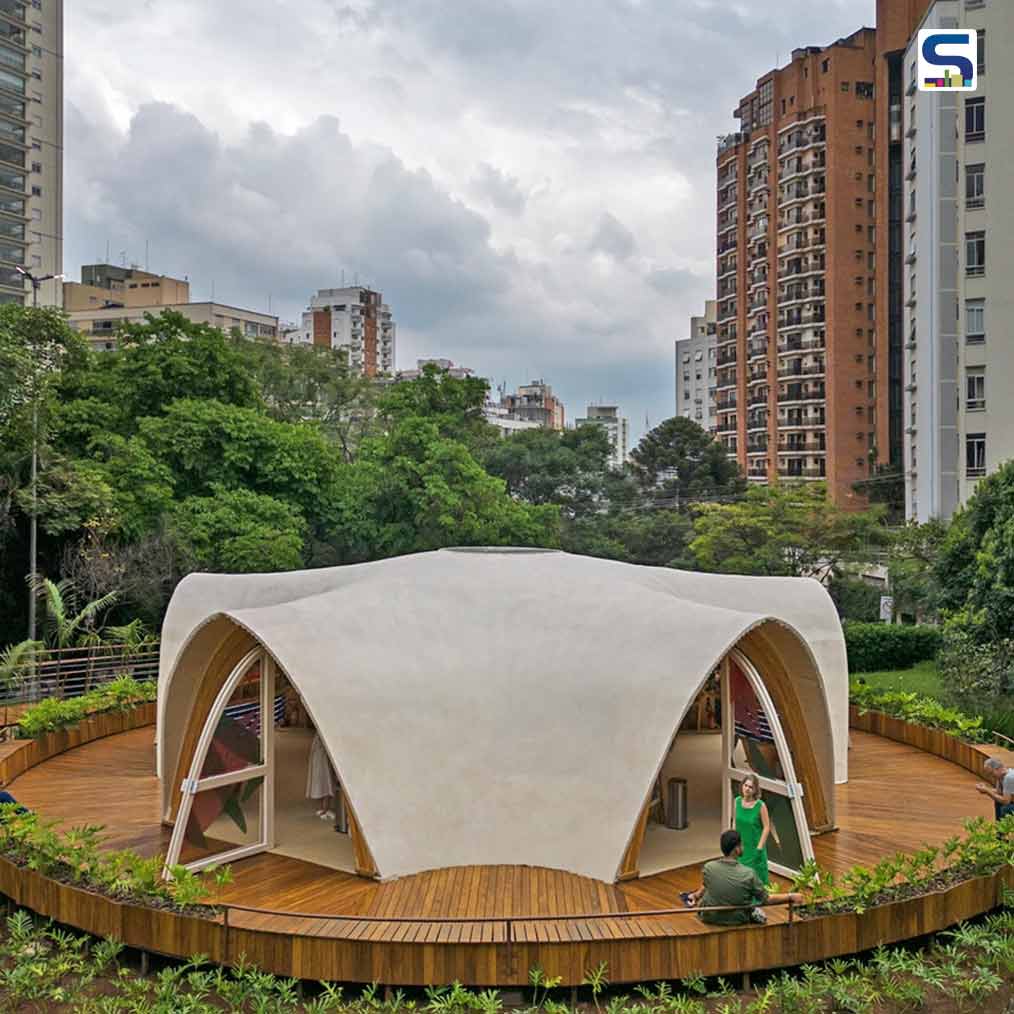
In the contemporary landscape, the realm of 3D printing has extended its reach into nearly every domain, and architecture is no exception. Numerous architectural firms have embraced 3D printing as their primary method for constructing buildings, and this innovative approach has gained considerable traction and recognition within modern architecture. Unsurprisingly, given its myriad advantages, 3D-printed architecture has emerged as a straightforward, efficient and inventive technique that mitigates the risk of errors while significantly reducing construction time. By simplifying the construction process, 3D printing eliminates tedious steps, offering a streamlined approach.
.jpg)
Crafted by the Brazilian architecture studio Estudio Guto Requena, the Dolce Gusto Neo store, situated in Sao Paulo, showcases the application of algorithmic 3D printing.
Nescafe has joined the 3D printing trend with the introduction of its inaugural 3D-printed pop-up store. Crafted by the Brazilian architecture studio Estudio Guto Requena, the Dolce Gusto Neo store, situated in Sao Paulo, showcases the application of algorithmic 3D printing. This sustainable store distinguishes itself through the utilization of a combination of biodegradable materials and recycled plastic, providing an eco-friendly alternative to conventional construction materials like steel and concrete, both of which contribute to carbon emissions and resource depletion.
.jpg)
Constructed with glued laminated timber (GLT) sourced from reforested pine trees, the Dolce Gusto Neo store boasts a dome-shaped design supported by fixed axes.
Inspired by the five petals of the coffee flower, the Dolce Gusto Neo store features a groundbreaking design that represents a commendable endeavor toward regenerative architecture. It offers an environmentally conscious and innovative approach to constructing prefabricated retail stores. According to Estudio Guto Requena, the design for the Dolce Gusto Neo flagship unites innovation, sustainability and architecture. “The building architecture invites one to reflect on potential futures that we could design, especially given the climate emergency we are facing.”
.jpg)
The store is covered with timber decking, and its distinctive design marks it as the first 3D-printed structure in Latin America built with biodegradable materials.
Constructed with glued laminated timber (GLT) sourced from reforested pine trees, the Dolce Gusto Neo store boasts a dome-shaped design supported by fixed axes. These axes accommodate five glassed archways that provide panoramic views of the surrounding green space. The store is covered with timber decking, and its distinctive design marks it as the first 3D-printed structure in Latin America built with biodegradable materials.
.jpg)
The shell covering the structure is crafted from computer-milled molds, minimizing material weight and contributing to the optimized structure.
The Dolce Gusto Neo flagship serves as a model of sustainability, with its prefabricated structure comprising glued laminated timber made from reforested pine trees. The shell covering the structure is crafted from computer-milled molds, minimizing material weight and contributing to the optimized structure. Emphasizing sustainability, the construction materials, primarily wood and plaster, will be recycled or repurposed as agricultural fertilizer after the store is dismantled, underscoring the commitment to eco-friendly practices.
.jpg)
The Dolce Gusto Neo flagship serves as a model of sustainability, with its prefabricated structure comprising glued laminated timber made from reforested pine trees.
Project details
Year: 2023
Produced by: Nestle
Builder: 4Constru
Creative direction: Guto Requena and Rodolfo Torres
Director of operations: Ludovica Leone
Project coordination: Camila Goncalves
Communication coordination: Thalissa Bechelli
Architecture: Henrique Stabile, Rodolfo Torres, Mateus Fraga and Priscila Almeida
Furniture design: Rodolfo Torres and Orion Campos
Manager: CTE
Lighting design: Focus Light & Design
Landscape design: Juliana Freitas Paisagismo
Installation design: RGK
Automation design: Bettoni Automation and Security
Accessibility consulting: Elisa Prado
Firefighter consulting: Engepoint
Sustainability consulting: CTE Sustainability
Sustainability consulting in Concept Stage: MateriaLAB
Visual communication: BFerraz
Photographs: Leonardo Finotti; Courtesy: Estudio Guto Requena